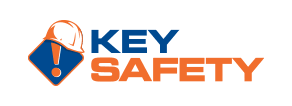As many industries continue to struggle with the effects of a lagging economy due largely to the downturn in commodity oil prices, companies are reducing staff and many tenured experts are accepting early retirement. This could be one of the greatest exits of expertise from many areas of technical and professional disciplines that industries, especially Oil & Gas, have ever experienced.
When the upturn in the economy begins there will be a three-fold concern for companies that wish to retain a leading position in their respective industries:
- Gaps in tenured experience will need to be rapidly fulfilled with a next-gen, less experienced workforce.
- Time-to-competency must be accelerated across all technical disciplines, allowing for learning to take place at the point of work.
- Mobile technology to drive learning, assure competency and provide enterprise-wide visibility of process and performance improvement must become the new paradigm.
Whether companies commit to making a proactive investment in meeting these challenges or not, either way there will be a price pay. If you’re going to pay, the real question is, ‘What’s the smart money play?”
Entertain While You Train?
There seems to be a lot of discussion in training forums about creating a new, more engaging experience for the next generation of incoming workers. Many content creators are focused on developing ‘gamification’ programs that ‘entertain while you train’. Programs that offer a virtual reality simulation of a complex process unit, allowing engineers, maintenance crafts and operators to simulate workflows without ever having to leave the office or control room.
It is a concept that has been hotly debated in some forums and at first glance it seems to be a great way to learn while avoiding risk exposure in the field, both to the process and to the learner. But what is the true cost of such an approach. I’ve seen RFP estimates in the $1.5MM to $3MM to develop these virtual-reality learning environments. Annual maintenance and technology upgrades costing 20-30% of that initial development cost.
What about the intangible ‘costs’ in the form of risk associated with the lack of real interaction with the process equipment and familiarity with aspects such as process upsets that require quick critical thinking. Standing in front of a live unit gives an entirely different perspective than a virtual rendition.
Smart Money will be Invested in Learning at the Point of Work
The most immediate priority for highly technical industries is to invest in developing a consistent, thorough and sustainable process for capturing knowledge and replicating best-practice workflows using their brightest and best subject matter experts (SMEs). Once captured, companies must implement a technology that allows for easy re-authoring of those workflows and seamless access to best-practice reference information that can be deployed across a mobile platform and recalled for on-demand use in the field.
However, with the number of experienced professionals that have already left many industries due to job cuts or early retirement, some companies may indeed be forced to pay Mr. Piper if their best and brightest have left the gate.
Some recommendations for transitioning away from ‘traditional training’ to a Performance Support System (PSS) that will truly accelerate your workforce competency and their ability to affect positive impacts on the business:
- Develop (or engage an expert to help develop) a process to capture your SME knowledge and best-practice workflows.
- Author those workflows, integrating on-demand knowledge and reference materials using a mobile-based technology platform (e.g. FatFinger™).
- Understand the Five Moments of Learning Need and use the technologies developed to specifically support learning and competency assurance at the point of work.
If implemented correctly and soon companies will spend less, learn more and avoid paying Mr. Piper’s premium.
We have a community of performance support professionals that can help, contact us now to get started.





